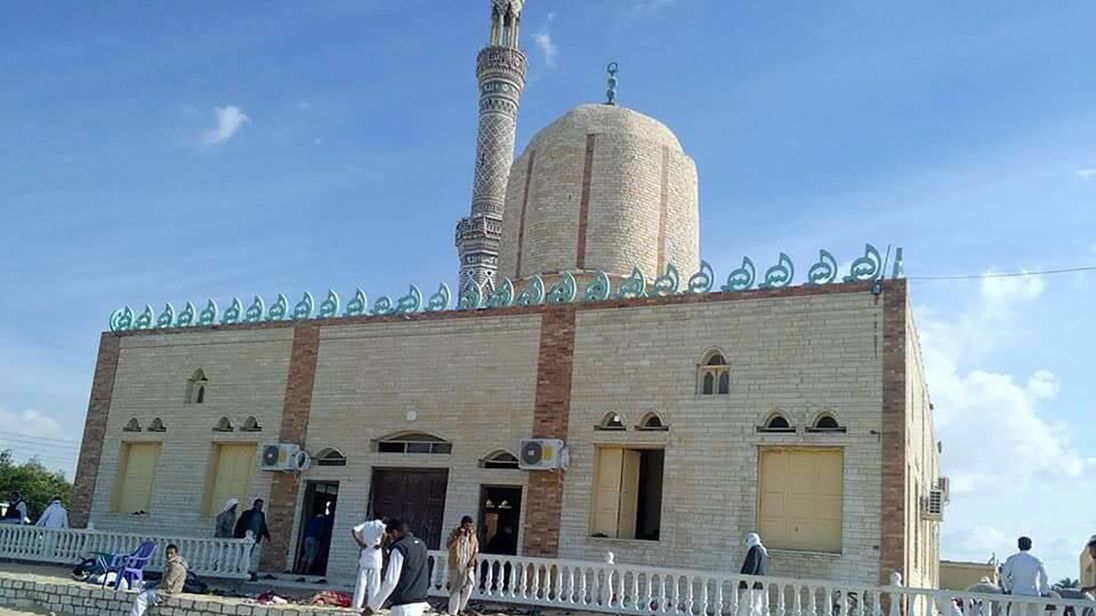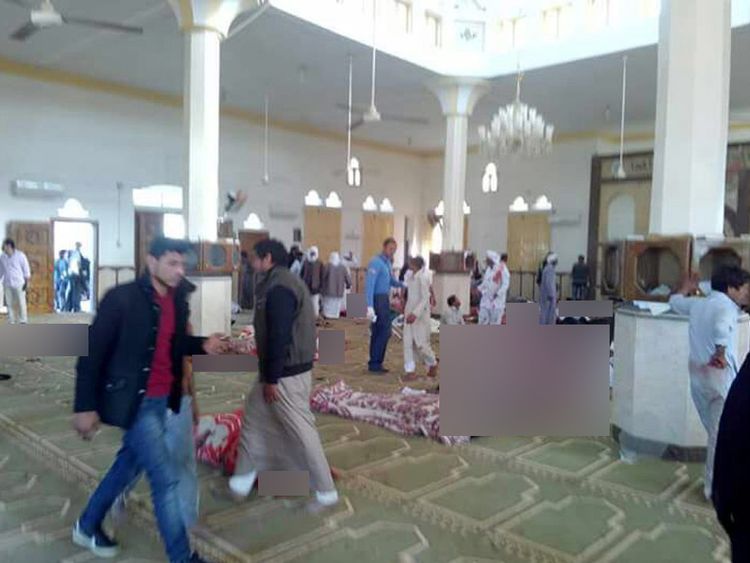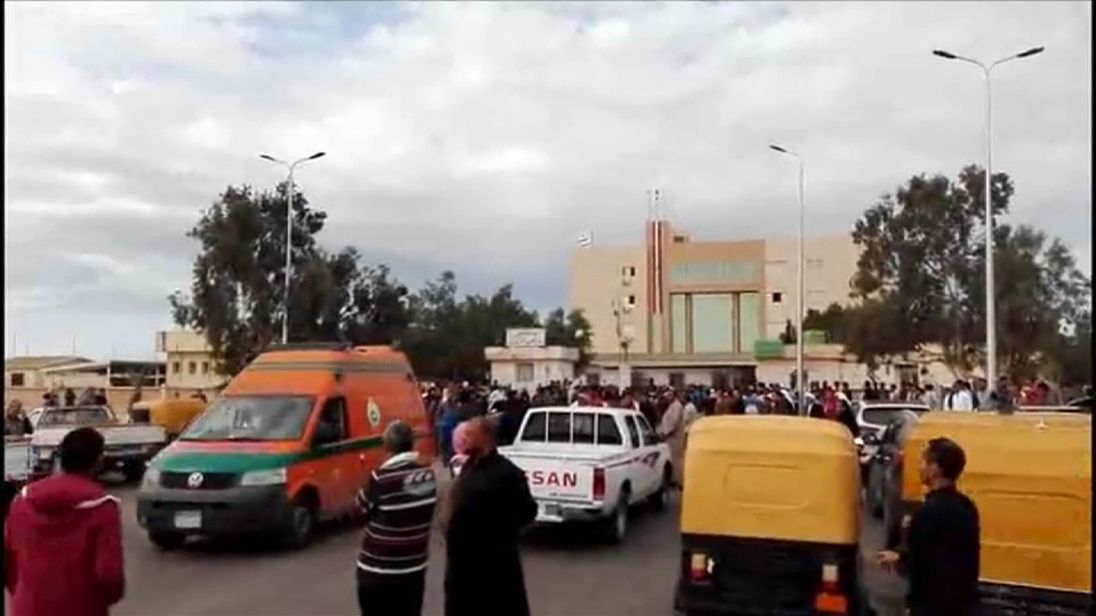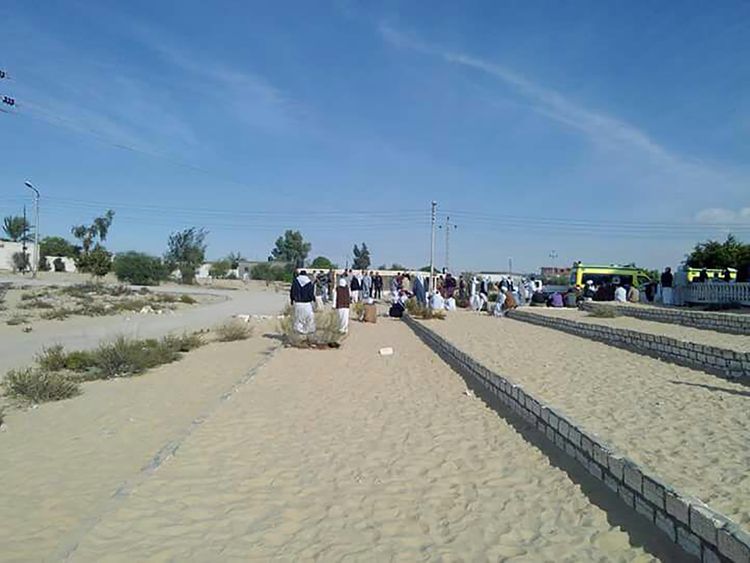At least 235 people have been killed and dozens more injured after a suspected Islamic State bomb and gun attack on a mosque in Egypt.
The country's government has declared three days of mourning following the assault on al-Rawdah mosque on Friday afternoon - one of the deadliest attacks in Egypt's modern history - which has also wounded more than 100 people.
The mosque is in Bir al-Abed in the volatile northern Sinai Peninsula, around 25 miles from the provincial capital of el-Arish, which has been regularly targeted by IS militants in recent years.
Officials said around 40 militants armed with guns arrived at the mosque - largely attended by Sufi Muslims, seen as non-believers by IS - in four off-road vehicles before detonating a bomb and opening fire from different directions, blowing up cars to block routes as people tried to escape.
No group has yet claimed responsibility for the attack - which came as worshippers took part in weekly Friday prayers - but state news agency MENA reports that it "appeared" to have been carried out by IS.
The Egyptian military began carrying out airstrikes in the area on Friday evening.
It came an hour after President Abdel Fattah al Sisi gave a televised address in which he vowed a "brutal" response to the "criminal" and "cowardly" attack following an emergency security meeting, insisting that it "will not go unpunished".
He added: "The army and police will avenge our martyrs and return security and stability with force in the coming short period."
A local resident, whose relatives were at the scene of the bomb and gun attack, said: "They were shooting at people as they left the mosque.
"They were shooting at the ambulances too."
Another local resident, Ashraf el-Hefny, said many of the victims were workers at a nearby salt firm.
He added: "Local people brought the wounded to hospital on their own cars and trucks."
Police officers said the militants had tried to stop people from escaping from the area by blowing up cars and then using the burning wrecks to block roads.
Cairo's international airport has boosted security following the attack, with troops seen patrolling passenger halls, conducting searches and manning checkpoints.
Prime Minister Theresa May tweeted to say she was "appalled" by the "sickening attack", with US President Donald Trump condemning it as "horrible and cowardly".
"The world cannot tolerate terrorism, we must defeat them militarily and discredit the extremist ideology that forms the basis of their existence," Mr Trump added.
IS militants have killed hundreds of police and soldiers in the region since fighting intensified over the last three years, although they have mostly targeted Egypt's security forces.
Earlier this year IS posted a video of the beheading of two Sufis in northern Sinai, accusing them of practising "sorcery", and in July the group claimed responsibility for suicide car bomb attacks on two military checkpoints in the region, which killed 23 soldiers.
They have also targeted Christian churches and pilgrims in the country. A bombing in October 2014 led to the Government declaring a three-month state of emergency, but Friday's attack is region's the deadliest to date.
Middle East analyst Timothy Kaldas told Sky News that the military's "scorched Earth" approach towards eliminating IS did not appear to be working and described the scale of the attacks in the region as "unprecedented".
"The number of attacks has gone down slightly but the casualty figures have actually risen," he said.
He added: "Not enough has been done to win over the local population to deny Isis safe haven recruits.
"There's been reports of abuse where captured militants have been executed by the military, so there's a lot of concerns that the way the government is approaching things is actually increasing militancy rather than decreasing it."
The attack comes days after a deadly bombing on a mosque in Nigeria, which killed at least 50 people.











0 comments:
Post a Comment